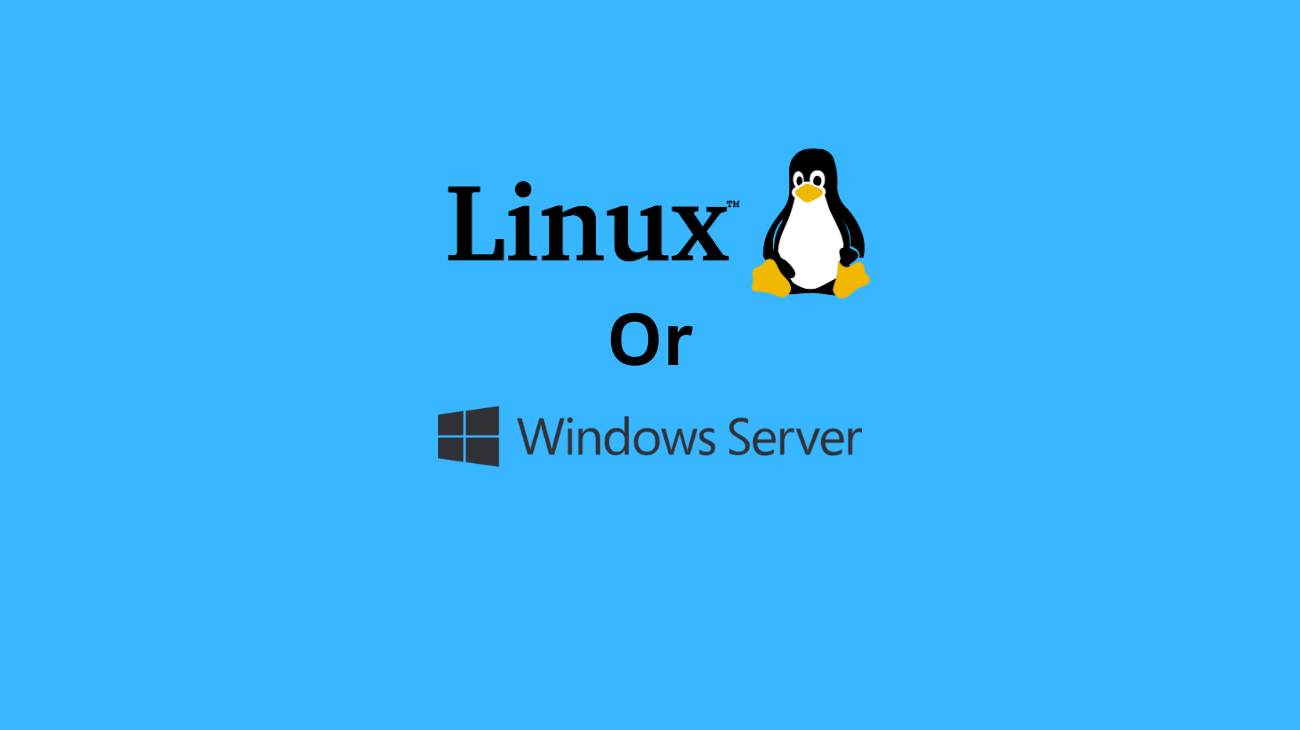In the world of Virtual Private Servers (VPS), the choice of operating system can significantly impact the performance, security, and functionality of your server. Linux and Windows are two of the most popular options, each with its own set of features and advantages. In this comprehensive guide, we’ll dive into the factors you need to consider when picking between Linux and Windows for your VPS.

ALSO READ: Choosing the Right OS for Your VPS: A Comprehensive Guide
Introduction
When setting up a VPS, one of the fundamental decisions you’ll need to make is selecting the operating system (OS) that will power your virtual server. Both Linux and Windows have their merits, catering to different user preferences, server requirements, and skill levels. Let’s delve into the key factors to help you make an informed decision.
Performance and Stability
Linux is renowned for its exceptional performance and stability. The open-source nature of Linux distributions allows for efficient resource utilization, making it a preferred choice for many web administrators. Additionally, Linux’s robust architecture enables servers to handle high traffic loads without compromising performance. On the other hand, Windows, while improved over the years, may require more resources to achieve similar levels of performance and can be more resource-intensive as a operating system.
Cost Considerations
For budget-conscious users, Linux often comes out on top. Most Linux distributions are open-source and free to use, which can significantly reduce operating costs, especially for smaller businesses and startups. Windows, however, usually involves licensing fees, which might not align with every budget.
Ease of Use and Learning Curve
The learning curve can play a pivotal role in your decision. Linux, particularly distributions like Ubuntu and CentOS, might appear daunting to those new to command-line interfaces. However, various user-friendly distributions and robust community support make the transition easier. Windows, with its familiar graphical interface, is generally considered more user-friendly, making it an attractive choice for those who prefer a more familiar environment.
Software Compatibility
Consider the applications and software you intend to run on your VPS. Linux boasts a vast repository of open-source software and tools, often readily available through package managers. However, some proprietary applications might have limited Linux support. Windows, on the other hand, offers compatibility with a broad range of software, particularly software designed for the Windows ecosystem.
Security
Security is a critical aspect of any server environment. Linux has a reputation for robust security due to its rigorous permission system and open-source nature, which allows for constant vulnerability detection and quick patching. Windows has made significant strides in security, but its closed-source nature and historical susceptibility to attacks may still raise concerns for some users.
Scalability
When it comes to scaling your server as your business grows, both Linux and Windows can accommodate your needs. Linux’s lightweight architecture often allows for better scalability, enabling you to efficiently allocate resources to meet increasing demands. Windows, while bulkier, offers scalability options and is well-suited for businesses with existing Windows-based infrastructure.
Server Management
Server management tools can impact your overall experience. Linux offers a wide array of powerful command-line tools and utilities, empowering experienced administrators to fine-tune their servers. Windows provides a range of user-friendly management tools, making it a convenient option for those who prefer a graphical interface.
Community and Support
Both Linux and Windows have extensive user communities and support networks. Online forums, documentation, and tutorials are readily available for both OS options. Linux benefits from a passionate open-source community that offers rapid assistance, while Windows users can access Microsoft’s comprehensive support resources.
Conclusion
Choosing between Linux and Windows for your VPS hinges on multiple factors, including performance, cost, ease of use, software compatibility, security, scalability, and management preferences. Linux excels in performance, security, and cost-effectiveness, while Windows offers familiarity, software compatibility, and user-friendly management. Assess your specific requirements, consider your comfort level with each OS, and make an informed decision that aligns with your VPS goals. Whether you opt for the efficiency of Linux or the user-friendliness of Windows, both choices can lead to a successful VPS hosting experience.
Get Your VPS/Dedicated Server Here





One Comment on “Linux vs. Windows for VPS: Choosing the Right Operating System”